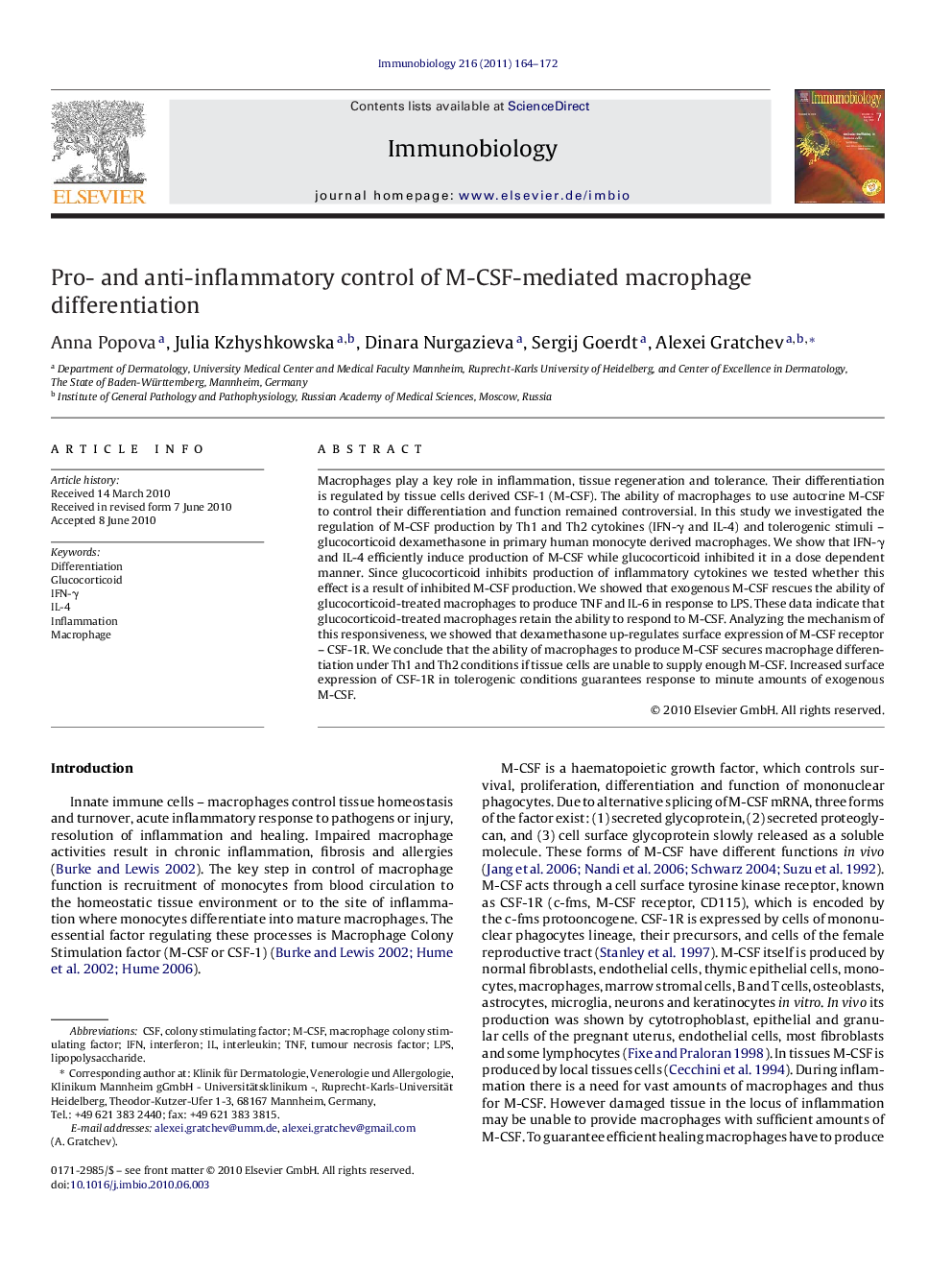| کد مقاله | کد نشریه | سال انتشار | مقاله انگلیسی | نسخه تمام متن |
|---|---|---|---|---|
| 2183558 | 1550297 | 2011 | 9 صفحه PDF | دانلود رایگان |

Macrophages play a key role in inflammation, tissue regeneration and tolerance. Their differentiation is regulated by tissue cells derived CSF-1 (M-CSF). The ability of macrophages to use autocrine M-CSF to control their differentiation and function remained controversial. In this study we investigated the regulation of M-CSF production by Th1 and Th2 cytokines (IFN-γ and IL-4) and tolerogenic stimuli – glucocorticoid dexamethasone in primary human monocyte derived macrophages. We show that IFN-γ and IL-4 efficiently induce production of M-CSF while glucocorticoid inhibited it in a dose dependent manner. Since glucocorticoid inhibits production of inflammatory cytokines we tested whether this effect is a result of inhibited M-CSF production. We showed that exogenous M-CSF rescues the ability of glucocorticoid-treated macrophages to produce TNF and IL-6 in response to LPS. These data indicate that glucocorticoid-treated macrophages retain the ability to respond to M-CSF. Analyzing the mechanism of this responsiveness, we showed that dexamethasone up-regulates surface expression of M-CSF receptor – CSF-1R. We conclude that the ability of macrophages to produce M-CSF secures macrophage differentiation under Th1 and Th2 conditions if tissue cells are unable to supply enough M-CSF. Increased surface expression of CSF-1R in tolerogenic conditions guarantees response to minute amounts of exogenous M-CSF.
Journal: Immunobiology - Volume 216, Issues 1–2, January–February 2011, Pages 164–172